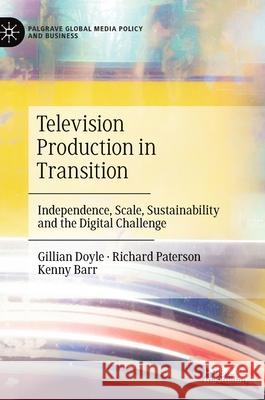Television Production in Transition: Independence, Scale, Sustainability and the Digital Challenge » książka
topmenu
Television Production in Transition: Independence, Scale, Sustainability and the Digital Challenge
ISBN-13: 9783030632144 / Angielski / Twarda / 2021 / 253 str.
Television Production in Transition: Independence, Scale, Sustainability and the Digital Challenge
ISBN-13: 9783030632144 / Angielski / Twarda / 2021 / 253 str.
cena 402,53
(netto: 383,36 VAT: 5%)
Najniższa cena z 30 dni: 385,52
(netto: 383,36 VAT: 5%)
Najniższa cena z 30 dni: 385,52
Termin realizacji zamówienia:
ok. 16-18 dni roboczych.
ok. 16-18 dni roboczych.
Darmowa dostawa!
Kategorie:
Kategorie BISAC:
Wydawca:
Palgrave MacMillan
Seria wydawnicza:
Język:
Angielski
ISBN-13:
9783030632144
Rok wydania:
2021
Wydanie:
2021
Numer serii:
000463425
Ilość stron:
253
Waga:
0.47 kg
Wymiary:
21.01 x 14.81 x 1.6
Oprawa:
Twarda
Wolumenów:
01
Dodatkowe informacje:
Wydanie ilustrowane











